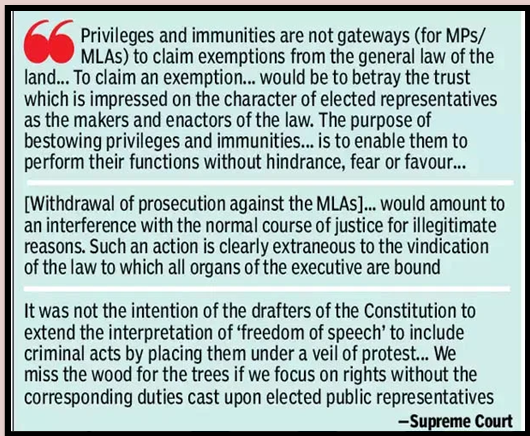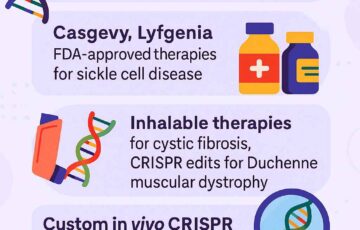SC: NO IMMUNITY FOR MPS & MLAS WHO TAKE BRIBE FOR VOTE, SPEECH IN HOUSE:
Why in the news?
Supreme Court overturns JMM bribery case verdict, denying immunity to MPs and MLAs for taking bribes, emphasizing public probity.
Highlights of the judgement:
- In a significant ruling, the Supreme Court overturned the 1998 PV Narasimha Rao judgement, denying MPs and MLAs immunity for bribery charges related to legislative activities.
- A seven-judge bench, led by Chief Justice DY Chandrachud, set aside the earlier ruling, holding that parliamentary privilege doesn’t shield lawmakers from criminal prosecution for accepting bribes.
- The 1998 verdict, allowing immunity under Articles 105(2) and 194(2), was challenged in an appeal by Jharkhand Mukti Morcha leader Sita Soren.
| What are the parliamentary privileges?
● Definition: Special rights, immunities, and exemptions for Parliament, committees, and members, defined in Article 105 of the Indian Constitution. ● Exemption: MPs exempt from civil liability (not criminal) for statements or acts during duties. ● Membership Requirement: Privileges applicable only to current members; end with membership termination. About Article 105(2): ● Article 105(2): Protects MPs from legal proceedings for their speech or votes in Parliament or its committees. ● Aims to enable MPs to discharge their duties without fear of legal repercussions. About Article 194(2): ● Article 194(2): Offers similar protection to members of state legislatures for their actions within the legislature. ● Ensures freedom of expression and voting without threat of judicial intervention. |





